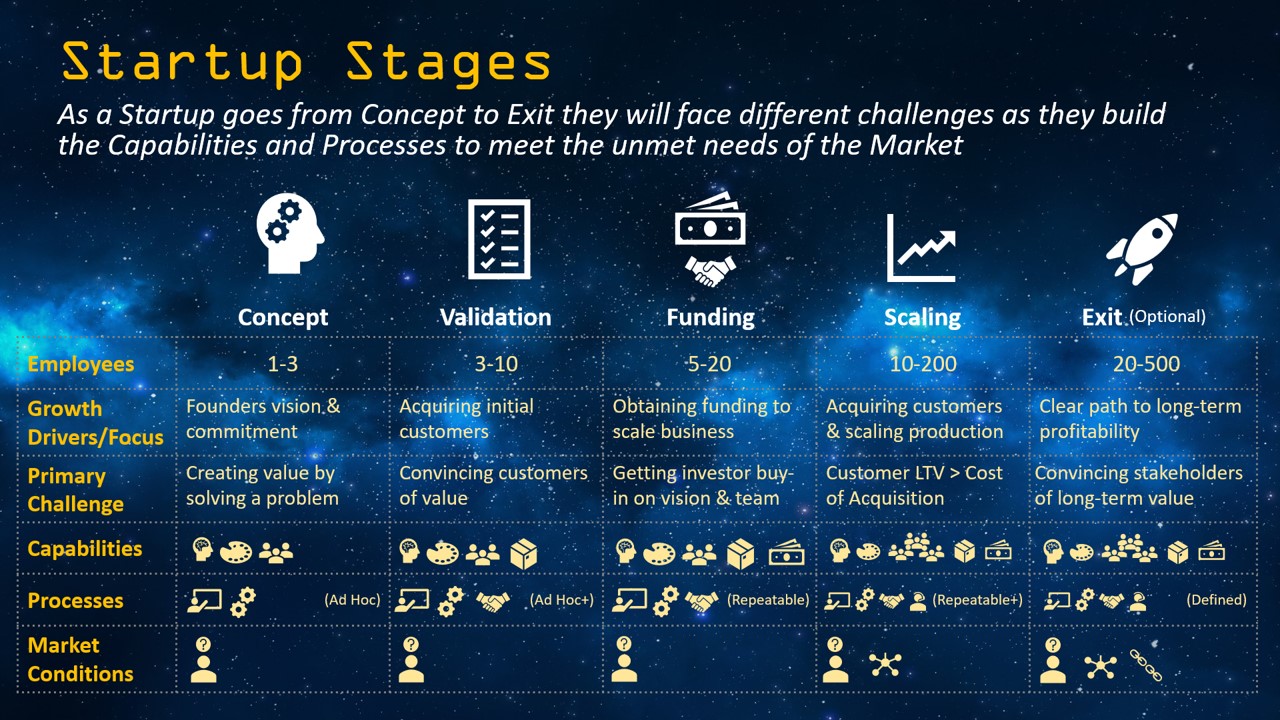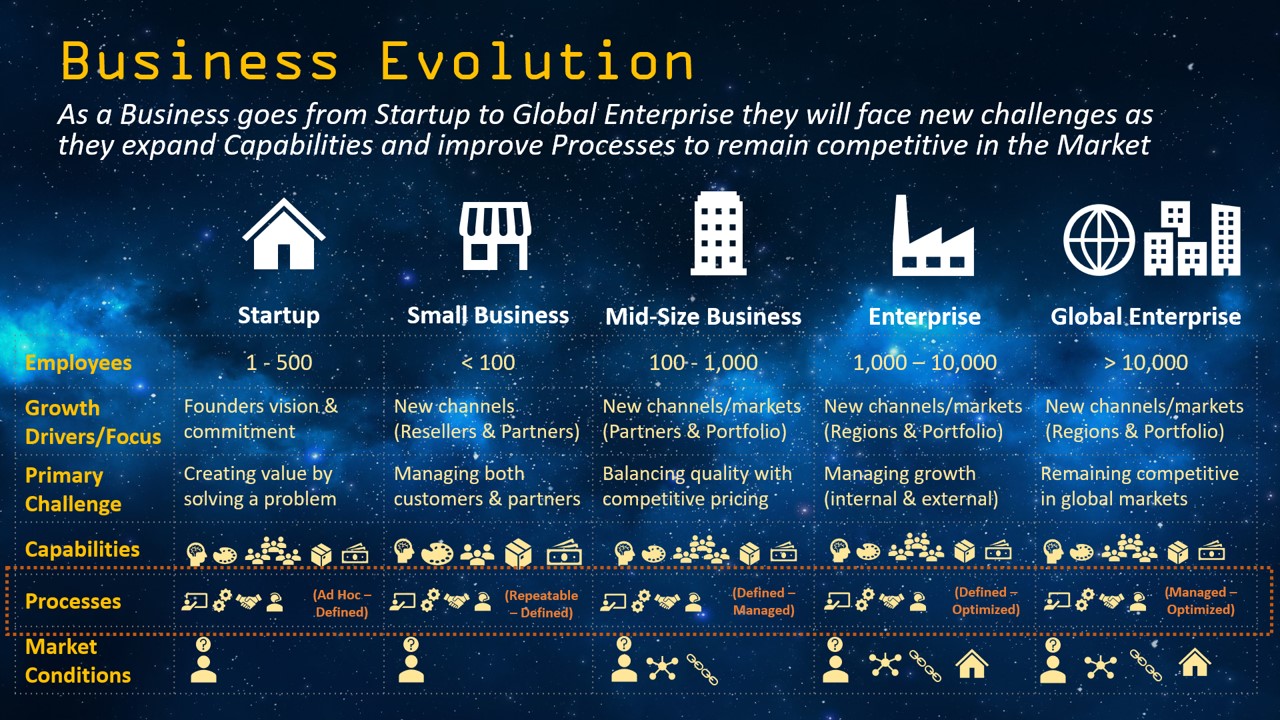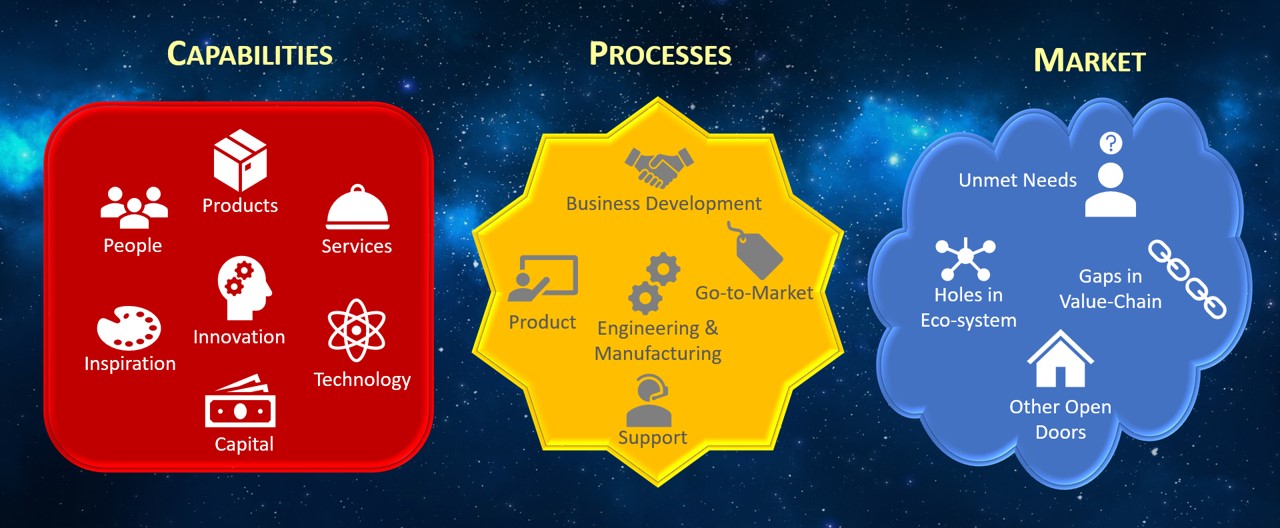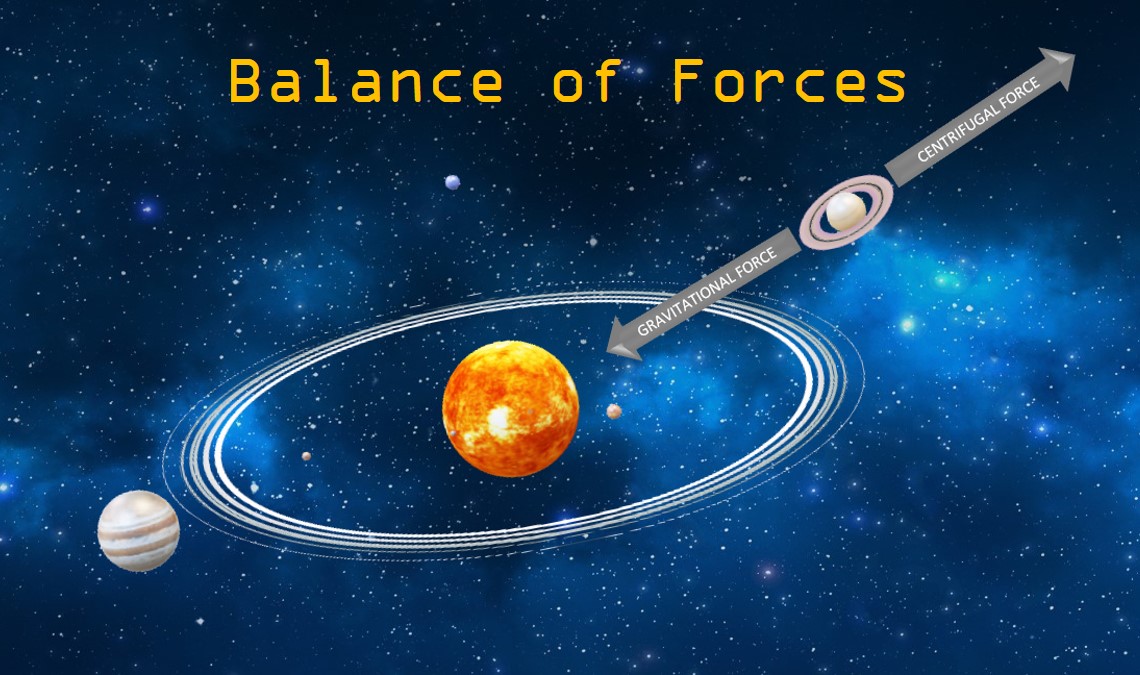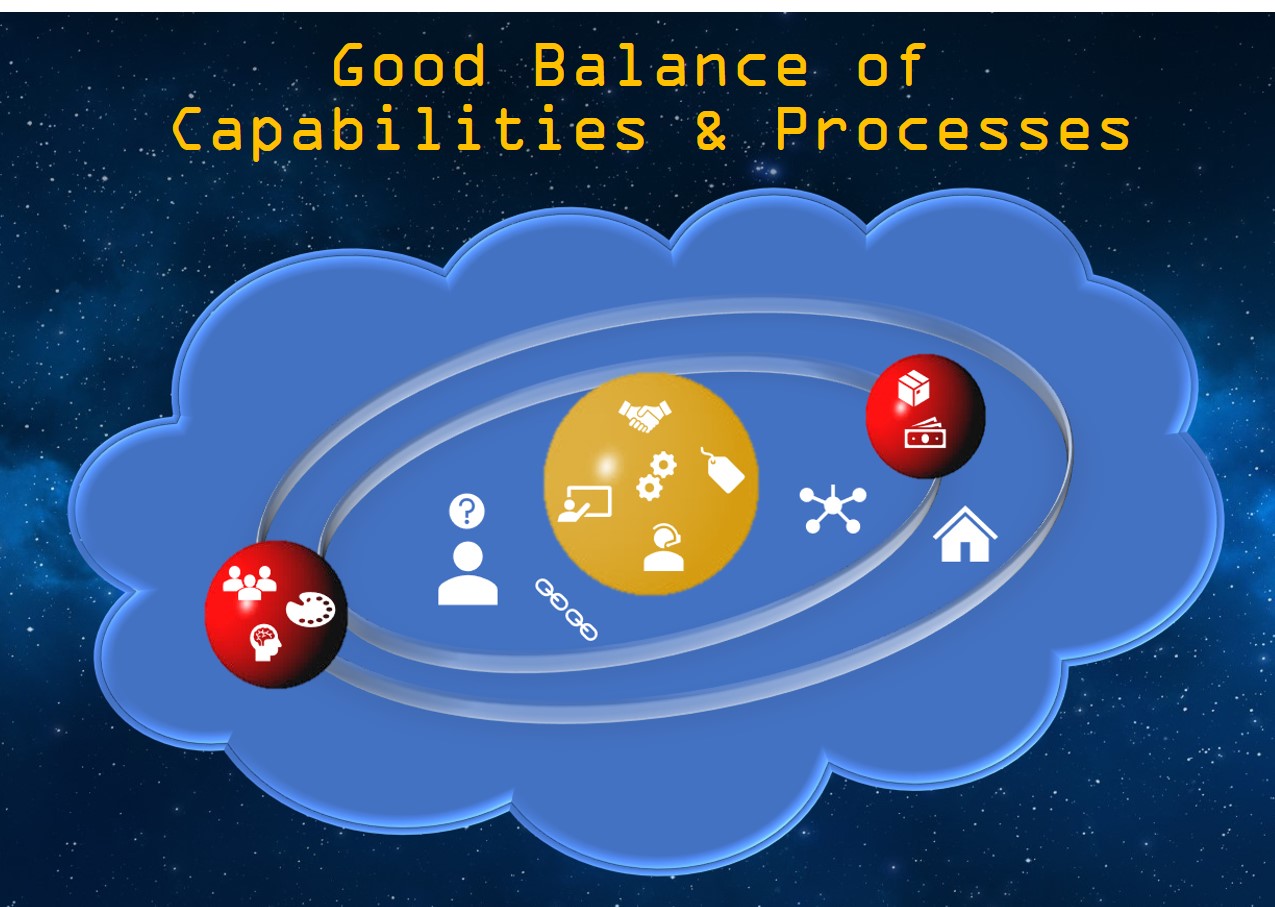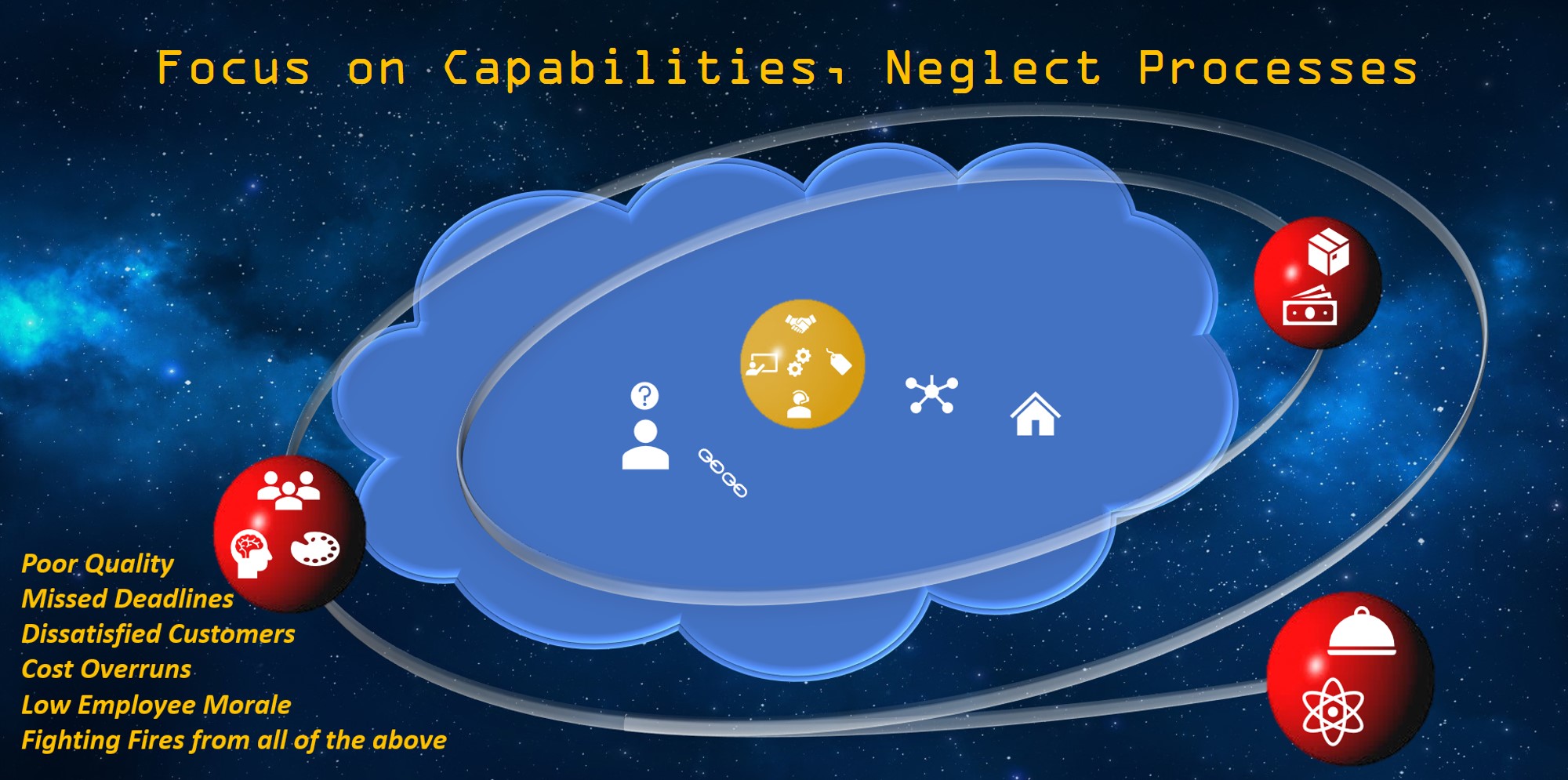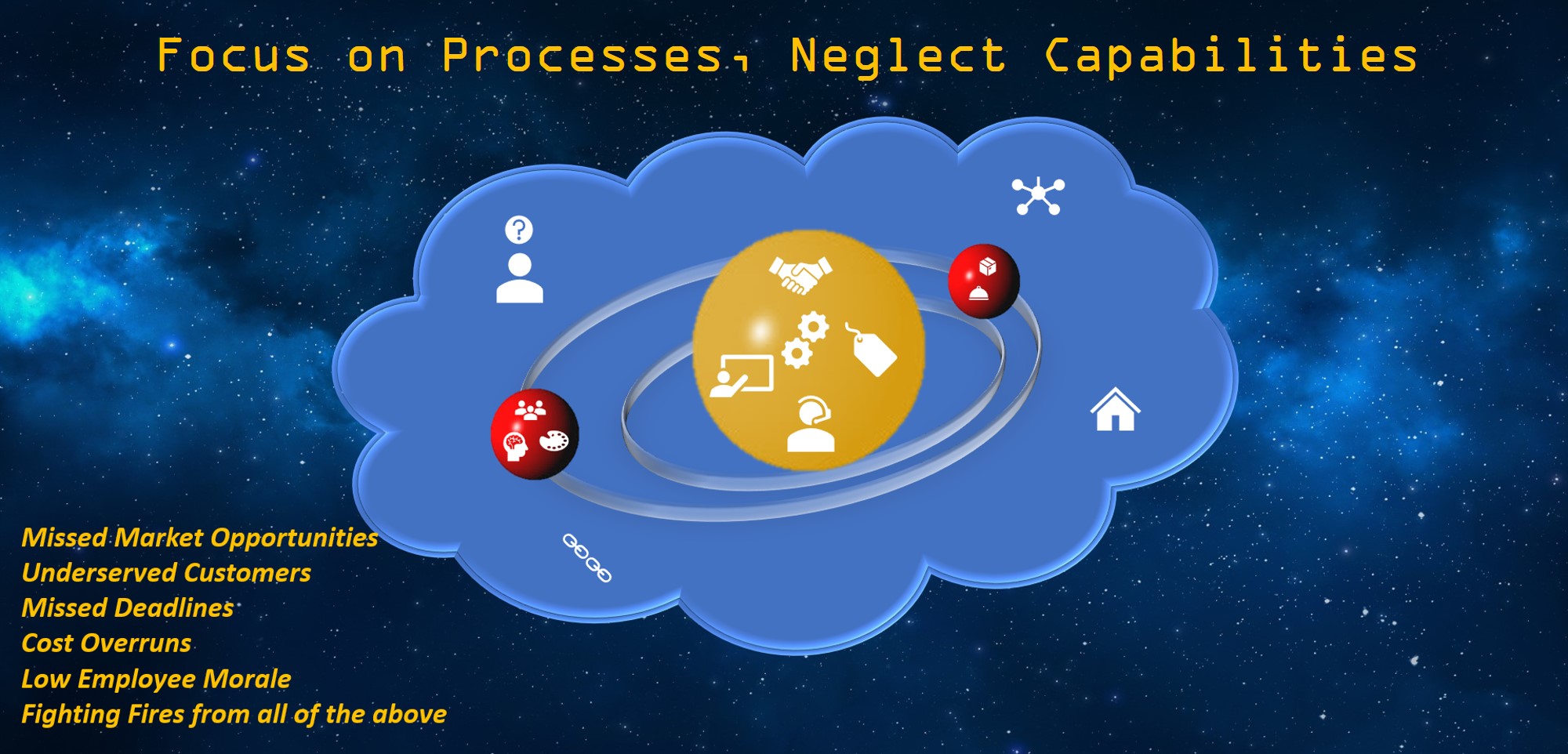Startup Innovation
We all know that innovation is the lifeblood of most startups. The ingenuity of uncovering and meeting unmet needs in the marketplace is crucial in creating a MVP (minimum viable product) that has any chance of getting market acceptance. However, the challenge comes when startup founders depend too much on innovation to further grow the business and neglect many of the basic business practices that will help them scale their new company. Many times the founders have an in-depth technical background which inspired their innovative concept. They are also smart enough to quickly learn the business processes required to take it to market and get funding. Due to this initial success, they sometimes feel the only way to continue business growth is to constantly innovate.
See The Nature of Business for more details.
Don’t get me wrong. All businesses need to innovate to stay competitive, but sometimes they can focus so much on it, they lose sight of the other important aspects of the business. This is an easy trap to fall into since innovation is interesting, exciting and easy to evangelize, especially for those of us with technical backgrounds. To the contrary, basic business practices like strategic marketing and efficient business processes are sometimes boring and tedious. Most of us would much rather spend time on the interesting tasks such as trying new ideas to see what works and leave the dull, painful things to others.
Related: The 8 Most Innovative Startups in 2017
Growth Challenges
This disproportionate focus on innovation usually becomes a problem in the Scaling stage of a startup, especially if they need to quickly pivot with a new product or business model. They need to be agile, but they also need to be effective and efficient if they hope to ever get to the Exit stage. Even after a startup exits via an IPO, or just gets large and profitable enough that it is no longer considered a startup, they sometimes think; “what got me here will also take me to the next level in my business evolution”.
However, even highly profitable businesses with significant cash reserves can see that success quickly dwindle if they don’t take care of the rest of the business. So what can you do to ensure your business will evolve and grow at healthy pace while still remaining profitable? As with most things in life, it’s important to maintain a good balance in your business also.

Related: 12 Challenges Startup Culture Must Overcome in Order to Thrive in 2017
Balancing Business Elements
If you break a business down into the fundamental elements of Capabilities, Processes and Market (see The Nature of Business) you can see it requires a combination of capabilities (e.g., innovation, products, people, etc.) and processes (e.g., engineering, go-to-market, etc.) to satisfy customer needs and address other market conditions and opportunities.
See Achieving Business Success for more information on all 4 Fundamental Elements and how they power your business.
More importantly, the need to carefully balance your efforts in growing and strengthening these two elements also becomes evident. In fact, the bigger a company gets, this balance between the strength of capabilities and maturity or effectiveness of processes becomes even more critical in meeting all of your customer’s needs. Let’s look at why this balance is so important using a basic science analogy.
Related: Innovation vs. Marketing: Balancing The Two Key Elements Of Business Success
You can think of balancing the strength of capabilities with the maturity of processes to be a delicate balance of forces. This would be similar to balance of gravitational forces with centrifugal forces that keeps all the planets consistently and predictably orbiting the sun.
Where process maturity could be represented by the size of central body like our sun. Similarly, the strength of capabilities could represented by the size of the planets orbiting the sun in stable elliptical orbits. If the balance is correct, then there will be enough stability in the system to address the market conditions and needs of your customers. In summary, balancing the right strength of capabilities with the right maturity of business processes will ensure your portfolio of products, services and technologies will address existing market conditions.
“Because the purpose of business is to create a customer, the business enterprise has two--and only two--basic functions: marketing and innovation.” – Peter Drucker (Business Author)
If you only focus only on building strong capabilities by hiring innovative and inspired people that can design and build state-of-the-art products and services, but neglect your go-to-market or quality assurance processes, you can miss the needs of your customers altogether. Specifically, you can have the most cutting edge technology in the market, but if your go-to-market processes are not getting the word out to the right audience, then that game-changing product or technology still cannot bring value to your business. You can have more features at lower cost than your competitors, but if you cannot maintain quality or production schedules, then your existing customers will go somewhere else.
Consequently, an imbalance can result in lost sales opportunities, poor quality, missed deadlines, dissatisfied customers, cost overruns, low employee morale and you will spend most of your time fighting fires from all of the above. In essence, the business can become unstable where you may be orbiting and operating outside the market. In summary, focusing too much on capabilities, especially innovation, while neglecting the maturity of business processes, can cause your business to miss market opportunities and the needs of your current customers.
"Marketing is too important to be left to the marketing people." - David Packard (Hewlett-Packard)
Conversely, trying to micro-manage all your processes with the primary focus being on quality and cost control, while not growing and strengthening your capabilities, can also be a problem. This can slow things down to where you are not keeping up with the needs of the market and remaining competitive.
This disparity will have very similar results where the business spirals inward and grinds to a halt. Similarly, it can also cause missed opportunities, dissatisfied customers, employee frustration and so on. In summary, focusing too much on managing and maturing processes and neglecting capabilities, especially innovation, can also cause your portfolio to miss the needs of the current market conditions.
The key to solving this dilemma is to pay very close attention to both your capabilities and your processes and ensure you are always striking the right balance as you grow the business.

Don’t Go It Alone
This may make sense in theory, but what can you actually do to effectively manage this as your business evolves? First, you just need to be aware of this potential pitfall of business evolution. Second, if your team is weak in one of these areas, then get help where you need it the most. If you are a startup, then having an experienced advisory team should help keep you on track. If you are post-exit and find yourself struggling to stay profitable or remain competitive, then find a business expert in the area that you need the most help with. Don’t make the mistake some founders/CEO’s make by thinking it is up to them to do it all. Some think; “this company is my baby that I birthed and nurtured with sweat equity and I can continue to figure it all out”.

Always keep balance in your business and life!
As you go from creating a startup MVP to developing a large portfolio of products, services and technologies, leverage the business knowledge that is available to you and stand on the shoulders of those experts. Proxcent Transformations has experience in many of these areas and you can learn more about our Mission Specialties if you are seeking help.
Related: 3 Tips to Managing C-Suite Challenges in a Fast Growing Start-Up

